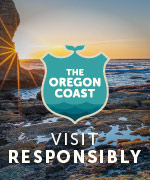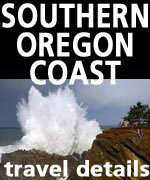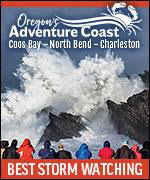Why Do So Many Ignore Oregon Coast Wave Warnings? Answer is Uneasy Reality
Updated Periodically
By Andre' Hagestedt, Editor
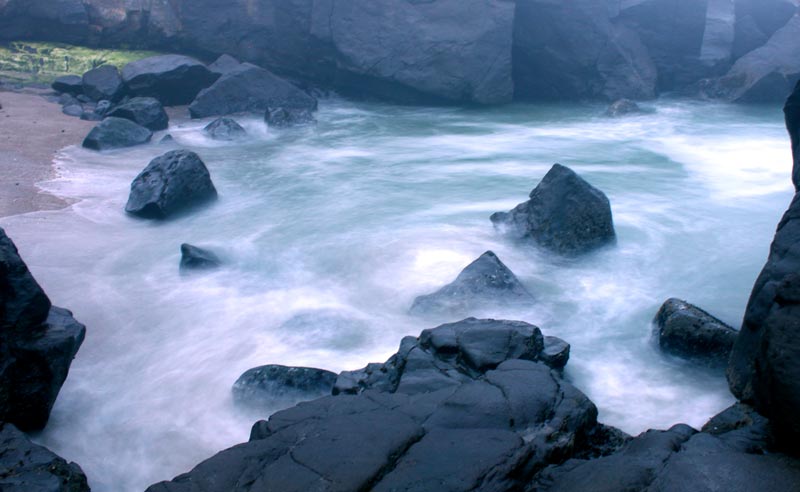
Includes exclusive listings; some specials in winter
In Cannon Beach:
Includes rentals not listed anywhere else
In Manzanita, Wheeler, Rockaway Beach:
Some specials for winter
In Pacific City, Oceanside:
Some specials for winter
In Lincoln City:
Some specials for winter
In Depoe Bay, Gleneden Beach:
Some specials for winter
In Newport:
Look for some specials
In Waldport
Some specials for winter
In Yachats, Florence
Some specials for winter
(Portland, Oregon) – When the big waves come, so does a tsunami of viral videos of bad behavior and sheer disregard for safety. 2019's run of awful videos was gut wrenching and frustrating. Still, it started me thinking more about that behavior. While the most recent tragedy where two children were lost to waves was not a result of willful disregard (it was more likely a freak wave), there were an unbelievable array of storm vids showing a complete recklessness.
Yet every year, the media stories, bulletins from authorities and social media posts are clear and abundant: stay away from this or that situation and heed the warnings issued.
So why do people ignore the obvious? How and why do they put themselves (and others) in harm's way? That season's host of videos showing not just spectacular waves but people ignoring the clear dangers brings on these questions.
The Internet's first reaction is to go caustic and crusty: insults hurled (like the word “idiot”) at the victim are numerous and spiteful. It's a reaction that's not helpful. With those viral near-misses it's understandable, although not in the least constructive. Well, a little shaming may not be a bad idea, if it causes the next person to think twice.
As editor of Oregon Coast Beach Connection, you want to filter out the crummy and misleading info on your social media, but I admit I find it hard to delete even those harsher comments on this subject, including the ones that seem more at home on the Swearnet network. Perhaps they could help warn others in the future?
Yet what can we do – in the tourism biz and the media – to truly drill this message of “stay away from the dangerous” into visitors' heads? After decades of deaths and injuries due to heavy logs rolling onto people, the state of Oregon seemed to have made an impact on that issue with its high-profile campaigns. What will work with this issue?
All this is very complex, and no one-size-fits-all answer will be found. First, we need to get into that mindset of why they ignore warnings in the first place. We need to start there.
One of the most enraging examples was the video taken by Rock Your World rock shop in Lincoln City, that showed a host of people beyond the barriers the city had put up closing off the area. One of my crazier memories as a news writer 20 years ago for a Portland radio station was the access at Garibaldi that was clearly closed off, but a lot of people wandered in and a few cars parked there anyway. All the cars were inundated and ruined by a massive surge that actually floated the vehicles for a time.
Part of the issue is that some scoff at suggestions of beach safety, and they even argue back. The video above showing people walking in dangerous conditions at Oceanside has had some alarming responses. One person on Oregon Coast Beach Connection's Facebook page actually called it “absurd.” Another gentleman once argued with me over how that beach didn't look dangerous to him. I've had other similar reactions to other dangerous surf videos.
We need to somehow find out why they do this. It's a recipe for future disaster. Then we can work on changing their minds.
I did some asking around of Oregon coast residents to find out if others had similar experiences. Seaside Aquarium's Keith Chandler said when they hand out warning pamphlets about surf dangers people are thankful. That's not the norm, it seems.
Asking around the town of Yachats, where Thor's Well and its hazards have become a hot button issue, residents there told me they get ignored and even flipped off when they try to tell a visitor to stay off a dangerous stretch. Some reported the warnings working about a quarter of the time; most reported little to no impact.
Another reader of Oregon Coast Beach Connection admitted he didn't know about sneaker waves until he lived here for a few years. Originally from another country where the ocean is rather calm, these dangers hadn't crossed his mind.
Chandler and others chimed in with one similar sentiment: it's human nature to be curious about these things and sometimes think you're invincible.
Now we have a tiny sampliing of data, though admittedly largely anecdotal. Perhaps some coastal entity could conduct a survey about people's attitudes? Then we can talk about memorials, barriers and more education programs as solutions.
We can look to what Rockaway Beach had done: they created committees and even a beach education program to help cut down on visitor tragedies.
One thing is for sure: the messages are not sinking in, even with state residents. I watched our own articles get passed around on Facebook (which were essentially just warnings to stay off the beaches) and I could see people's sketchy reactions at times, with talk about going out there into dangerous places. I face-planted so many times my head hurt. I knew someone was getting hurt with this storm. I'm just surprised it's someone who was trying to obey the warnings.
In the end, simply calling people “idiots” for being idiotic isn't going to help. More education, more warning signs, etc., can't hurt, but it will wind up more like throwing darts at the problem. Someone out there with decent resources needs to find out why the warnings are getting ignored.
One thing that seemed to help with the information programs on rolling beach logs were testimonies from families this happened to. Perhaps some of the victims from recent years can come forward and tell their tales as well?
Oregon Coast Hotels in this area - Where to eat - Maps - Virtual Tours
Cannon Beach Lodging
Nehalem Bay Lodgings
Manzanita Hotels, Lodging
Three Capes Lodging
Pacific City Hotels, Lodging
Lincoln City Lodging
Depoe Bay Lodging
Newport Lodging
Waldport Lodging
Yachats Lodging
Oregon Coast Vacation Rentals
Oregon Coast Lodging Specials
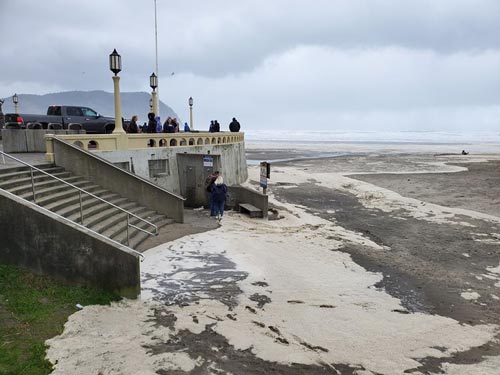
Photo courtesy Tiffany Boothe, Seaside Aquarium
More About Oregon Coast hotels, lodging.....
More About Oregon Coast Restaurants, Dining.....
LATEST Related Oregon Coast Articles
The building had also been robbed of pipes and copper by other thieves. True Crime, Astoria, Warrenton
Oregon Coast Crabbing Petition Denied, Rulemaking Process Remains on Course
A petition on procedural matters denied; no major changes yet. Whale
S. Oregon Coast Wind Warnings, Waves Up To 23 Feet
Gusts up to 65 and high waves for the weekend from Reedsport to Brookings. Weather
Newport Latest Oregon Coast Town to Ban Personal Fireworks Year-Round
City countcil voted this week; the pro fireworks display goes on as usual
Hazardous Seas Watch on N. Oregon Coast, S. Washington Coast, Waves Up To 15 Ft
Beaches will require caution but some good wave shows possible
Annual 'Maine' Event Returns to N. Oregon Coast's Seaside Aquarium
February 22 brings the fundraiser to Seaside. Seaside events
From Taking In Cool Oregon Coast Colors on the Patio to Seaside's Action
Review of Seaside's Seashore Inn on the Beach: spectacle with breakfast and your dog. Seaside hotel reviews
Oregon US Coast Guard Team Assists in Olympic National Forest Rescue
Helicopter team from Astoria rescued hikers on Washington's Mount Ellinor
Back to Oregon Coast
Contact Advertise on BeachConnection.net
All Content, unless otherwise attributed, copyright BeachConnection.net Unauthorized use or publication is not permitted



















